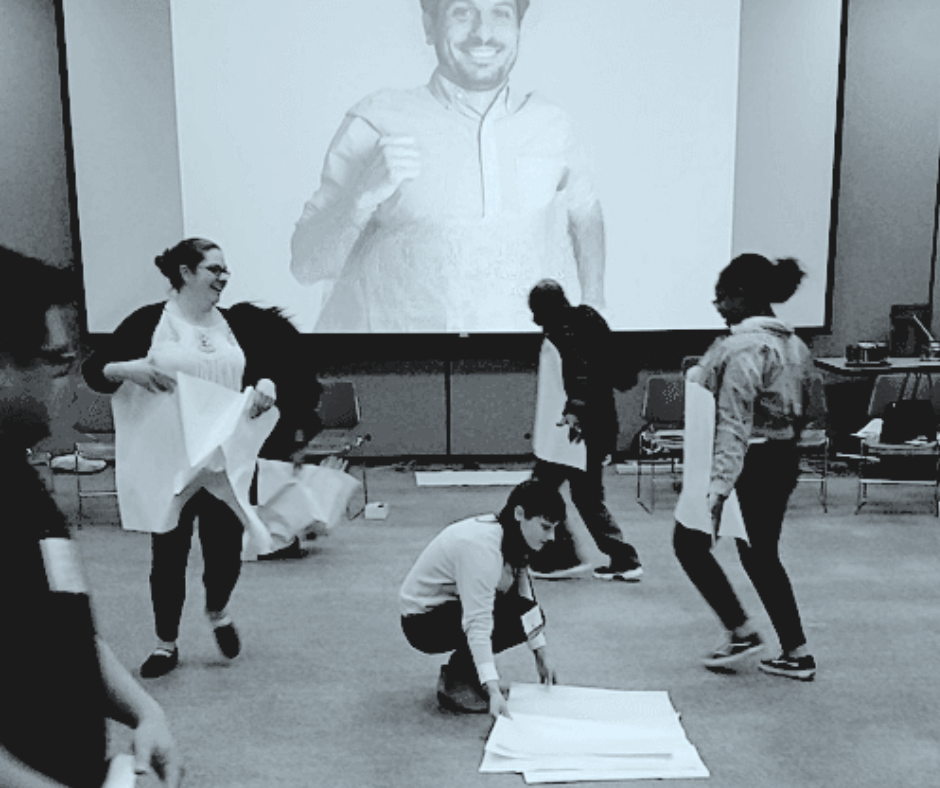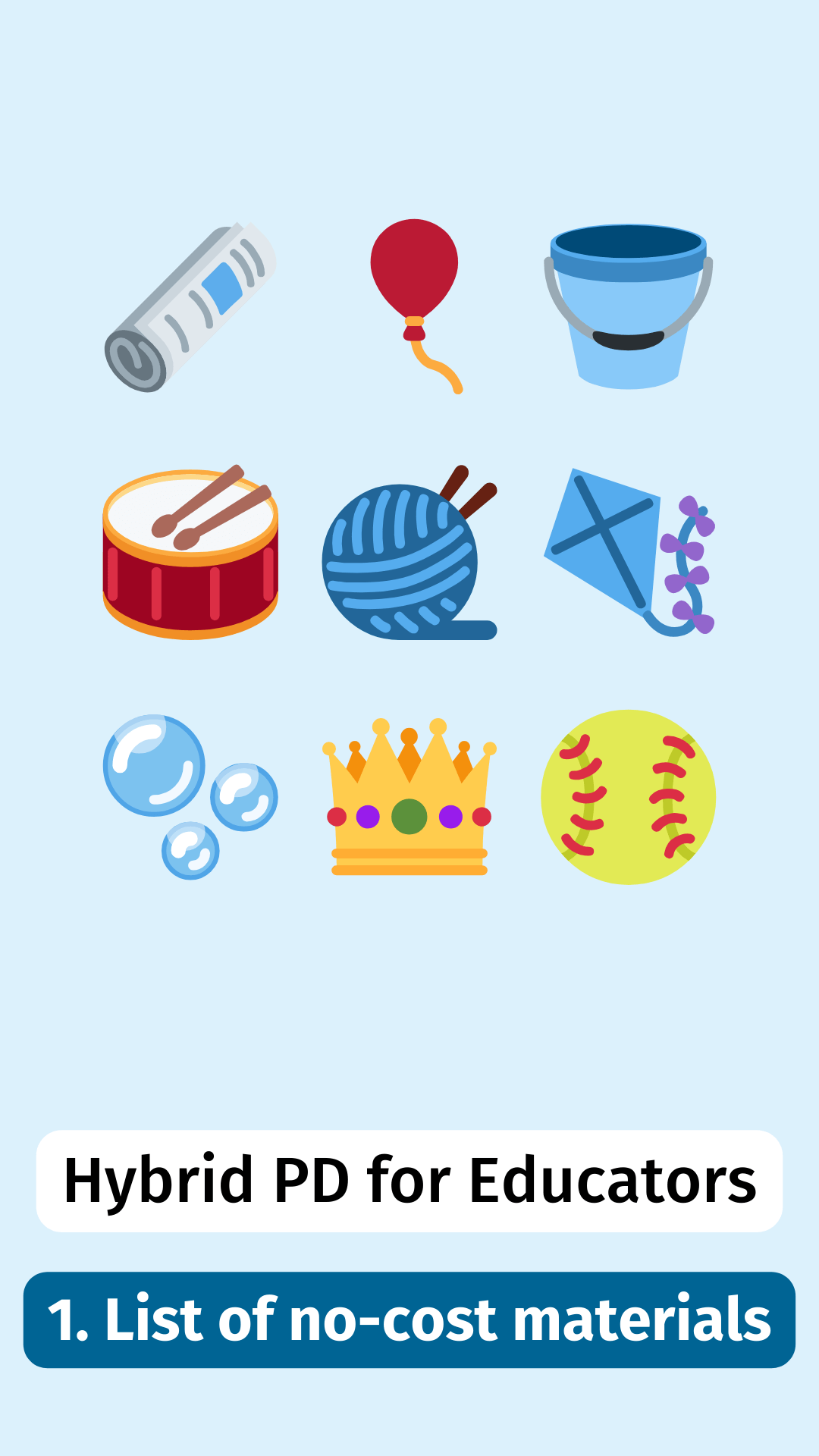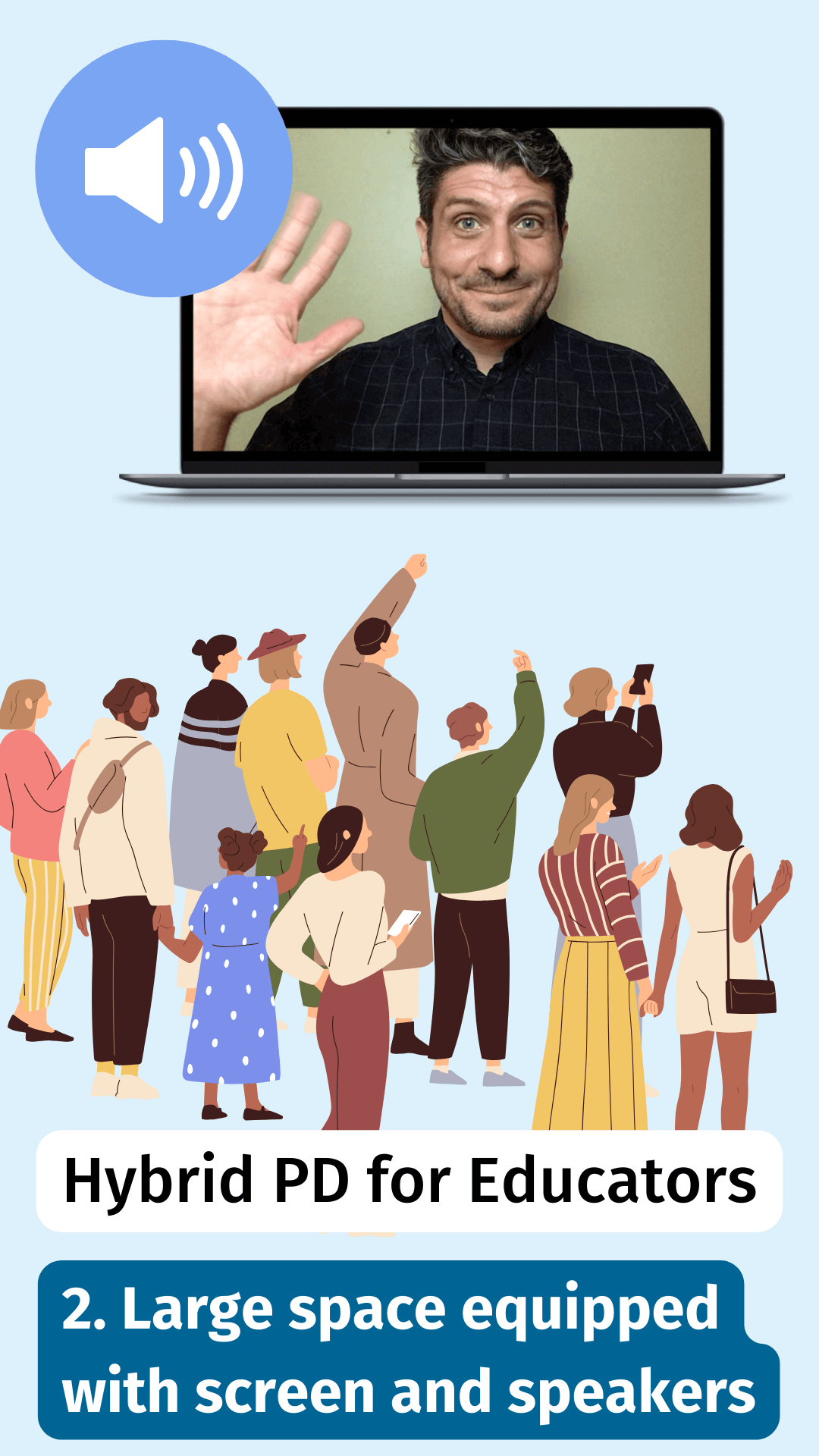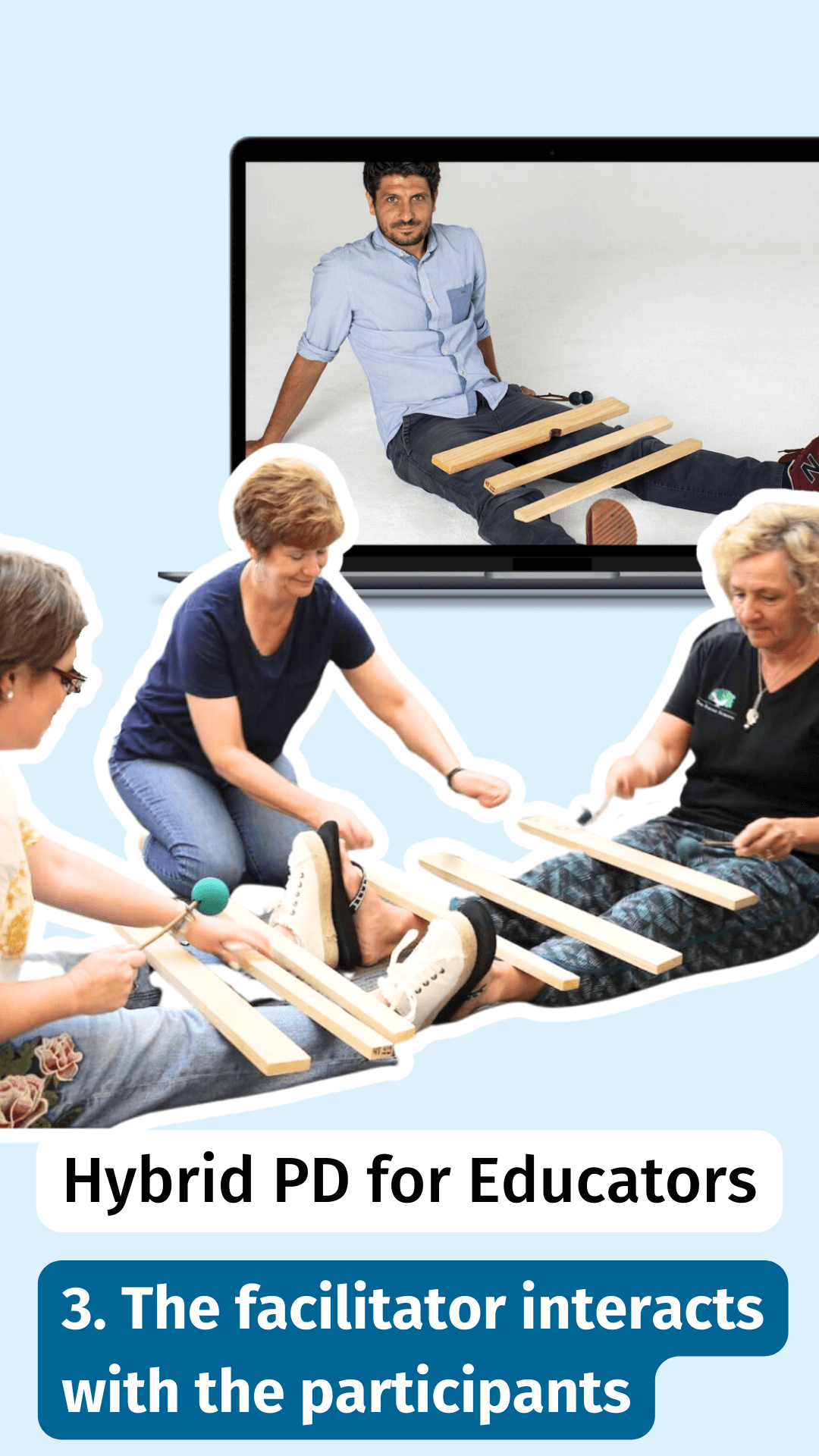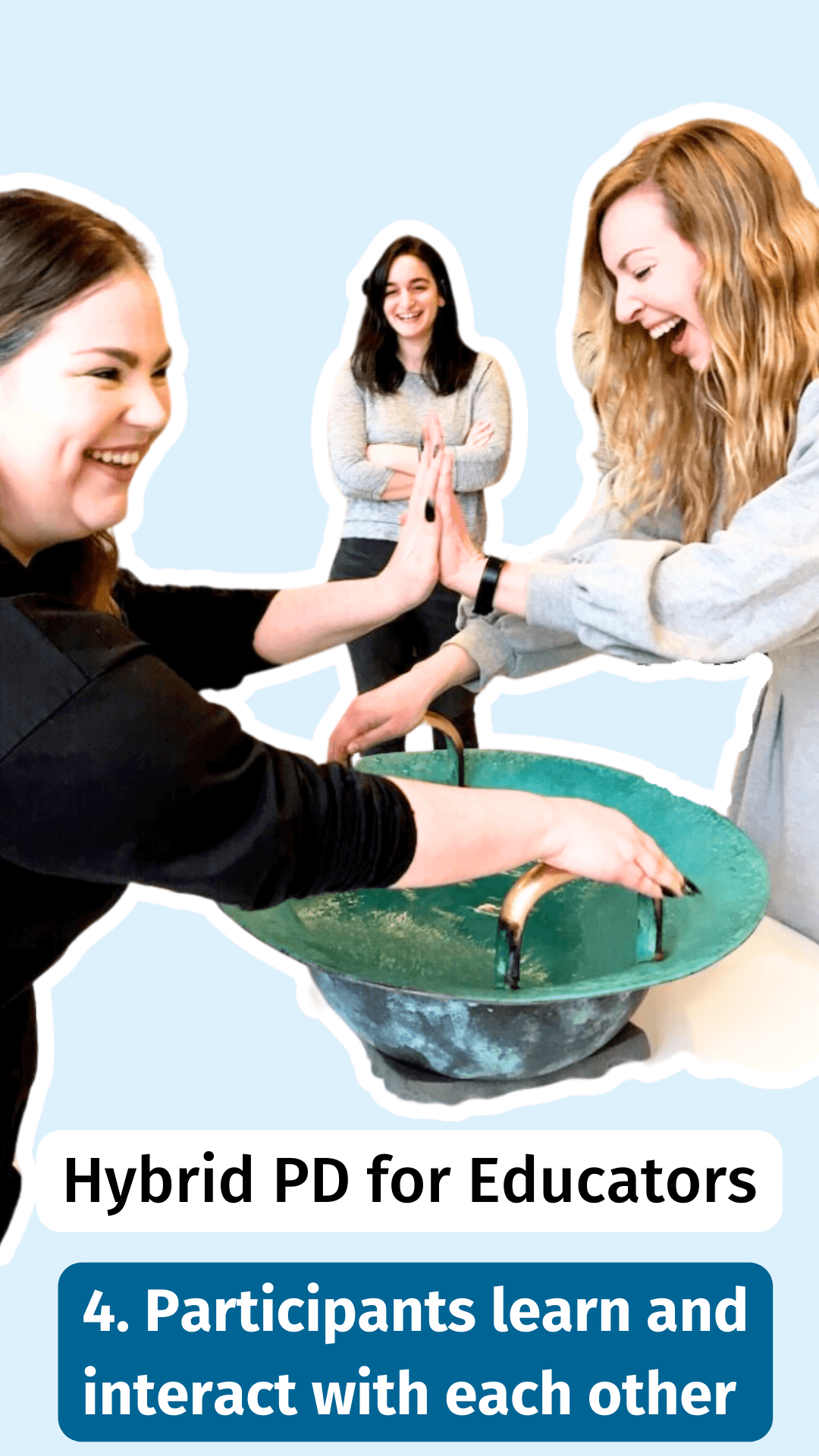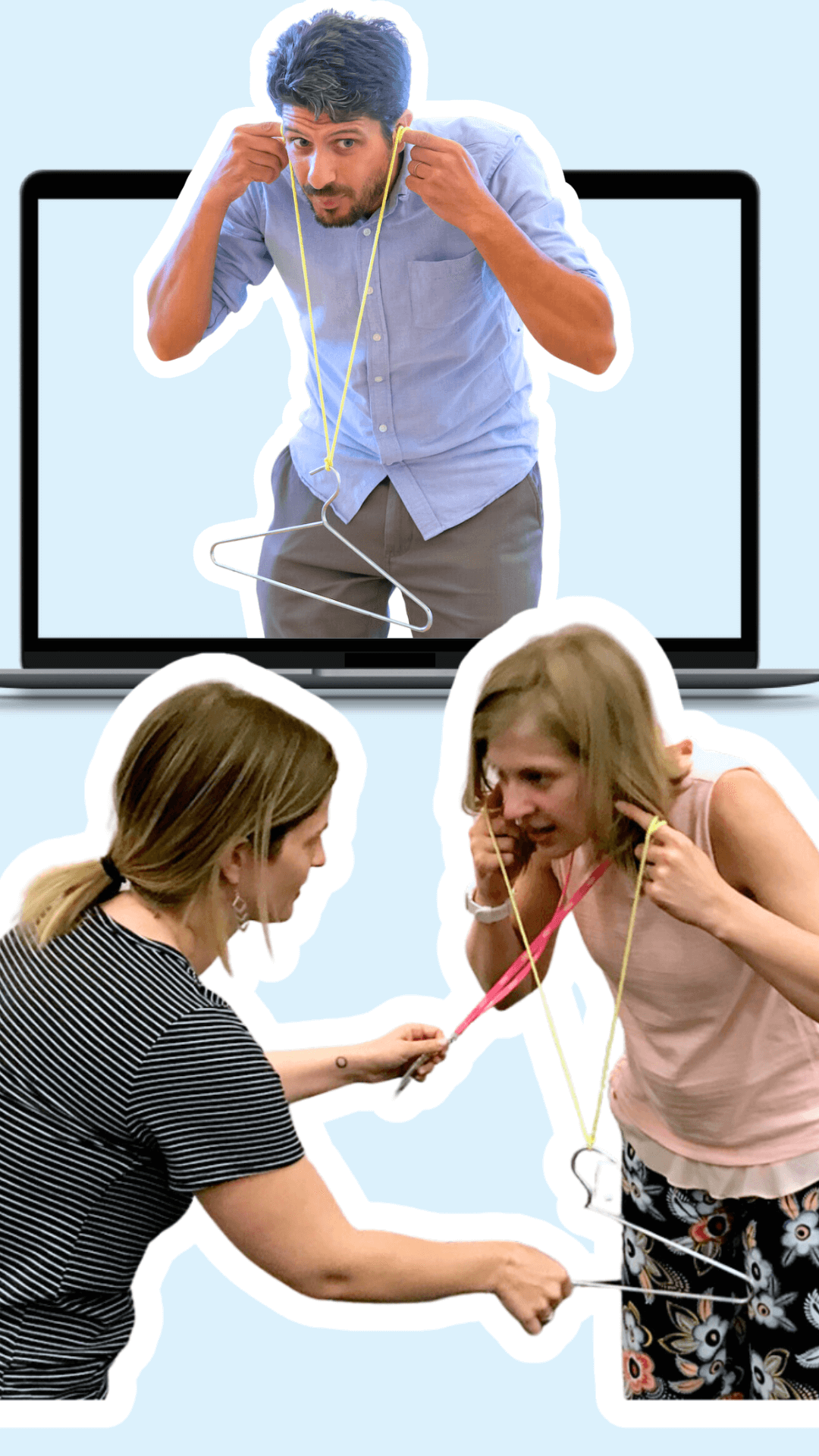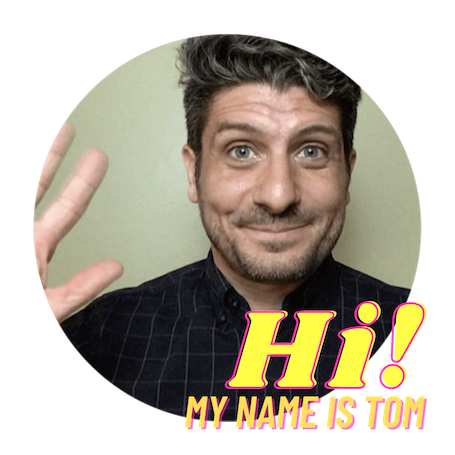How to save money on your school budget and make a long-term impact on early childhood educators with hybrid learning
What is hybrid professional development?
Hybrid professional development (PD) for educators is an approach that combines high-quality, in-person professional development with online or virtual components.
The Issue
Education professionals may have bumped into lapidary, frustrated articles claiming that “Teacher professional development is costly and ineffective.” It is true, someway: In-person professional development for teachers and educators is a pricy investment for the budget of schools and childcare centers. Moreover, effective, high-quality professional development training is a rare find in the continuing education market and often even more expensive – for many, simply unaffordable.
Luckily, there is a way to save money, avoid frustration, and provide educators with professional development that makes an impact: Hybrid professional development training.
Table of Contents
1. Benefits of Hybrid Professional Development for Teachers and Educators
2. How Hybrid Professional Development for Early Childhood Educators Works
3. Example of Hybrid Professional Development for Early Childhood Educators
4. The Hybrid Learning Model Breakdown
5. How to Save Money on Your School Budget with Hybrid Professional Development for Teachers
6. Popular, High-quality, Hybrid Professional Development Training Sessions for Early Childhood Educators
7. Conclusions
1. Benefits of Hybrid Professional Development for Teachers and Educators
Hybrid Professional Development Training for Early Childhood Educators takes the “best of both worlds” by combining the finest of hands-on, in-person professional development with efficient virtual components, such as having a facilitator running the session remotely.
This hybrid learning, or blended learning model, offers several benefits: it’s flexible, customizable around the client’s workplace, and essentially less expensive than PDs run in-person AND with the same, if not higher, content value and impact for the participants.
2. How Does Hybrid Professional Development for Early Childhood Educators Work?
In-person component: The faculty, team, or group of educators gathers in person at one location (school, conference room, gymnasium, backyard) and actively participates in the professional development training.
Virtual component: The presenter or facilitator runs the professional development training session from a meeting platform (Zoom), introduces the topics, and interacts constantly with the participants. These are encouraged to experience and try the training content straightforwardly during the session.
Outcome/Impact: In hybrid professional development, learning happens like during an in-person workshop. Participants collaborate actively, make discoveries, develop questions and ideas, and learn from mistakes and other participants.
3. Example of Hybrid Professional Development for Early Childhood Educators (Source: Embodied Learning)
4. The Hybrid Learning Model Breakdown
1. Assessment, Preparation
Before implementing hybrid professional development, it’s essential to assess the specific needs of the educators. Facilitators can do it through surveys, interviews, or other data collection methods.
At Embodied Learning, we team up with the preschool and childcare center directors to identify the areas where educators require training or support.
Directors generally contact us via inquiry forms or Calendly appointments. The assessment process is free of charge and includes a demonstration of the hybrid PD.
2. Online Component
The online component can comprise various elements, such as live sessions, webinars, video modules, discussion forums, or self-paced courses.
At Embodied Learning, we opt for live sessions combining the online component with the in-person workshop. This way, we allow educators to experiment, try, collaborate, and ask questions during the professional development session.
Along with it, we design and create digital resources and handouts customized to the educators’ needs.
3. In-Person Workshop
In-person workshops or training sessions offer opportunities for hands-on activities, collaboration, and deeper exploration of topics. These sessions should be interactive, engaging, and directly related to the online content.
At Embodied Learning, the in-person workshop is the core of the professional development training experience. It’s very dynamic and entirely hands-on. The facilitator interacts live with the participants from Zoom. The participants benefit from sharing the same space and actively learning together.
The key to a successful hybrid PD program is seamlessly blending the online and in-person components. This can be done by aligning the content and activities so that online materials prepare educators for in-person discussions and activities.
5. Collaboration and Peer Learning
A hybrid PD is designed to encourage educators to collaborate, share experiences, and learn from each other. Collaborative learning can be facilitated online and in person, allowing for a richer learning experience.
6. Reflection and Application
During and after the blended in-person session, educators are encouraged to reflect on what they’ve learned and how they can apply it to their teaching. Facilitators can create action plans to help educators apply their new knowledge and skills in their classrooms.
7. Technology and Support
Schools need access to appropriate technology and technical support to give educators the best and long-lasting hybrid learning experience. Facilitators provide clear instructions for software (EG Zoom) and devices (screens, projectors, speakers, and microphones).
5. How to Save Money on Your School Budget with Hybrid Professional Development for Preschool Teachers and Early Childhood Educators
The budget for professional development is often tight. School and childcare center directors and administrators generally have three options:
1. Looking for cheaper presenters, putting the PD content quality at risk, or begging the good ones for a discount. Meh;
2. Looking for free online PDs, which are hooks to sell some products your teachers mostly don’t need;
3. Sending the teachers to conferences or public PD events. Educators may have to pay for PD out of their pockets, using their off days and leaving the school understaffed.
Educational consultants, presenters, and facilitators make part of their revenue from fees for preparatory phone calls, PD concept design, research, and undetailed travel, flight, and hotel costs.
Facilitators can remain at their service location and provide clients with a list of readily available, zero-cost materials for the training session.
Additionally, experienced facilitators require less time for research and preparation since they possess a wealth of proven strategies suitable for the hybrid learning environment.
By eliminating these costs, hybrid professional development can cost a preschool or childcare center up to half or even less than a good facilitator typically charges for an in-person workshop.
This includes a large screen or projector, high-quality speakers, and a microphone. These components are the minimum requirements to ensure a successful and engaging hybrid learning experience for all participants.
6. Popular, High-quality, Hybrid Professional Development Training Sessions for Early Childhood Educators
School directors who have discovered the beneficial impact of hybrid professional development on their faculties’ performance and have saved plenty on school budgets are currently looking for hybrid professional development training around these topics:
● Fostering movement (Motor development, Psychomotor education, Coordination, Fine and gross-motor skills development, Impact on behavior)
● STEM in young children’s everyday life
● SEL (Social-emotional learning through play)
● Early Literacy (Fostering imagination and creativity of both teachers and children)
● Documentation (Methodological approach to the use of the classroom as a “third teacher;” Using documentation to inspire children using their memories; Using documentation to showcase progress to families and caregivers)
How can schools and early learning centers get a high-quality, hands-on, fun PD training session for the whole educators’ team run by a facilitator with 15 years of international experience for half the price or less?
I figured out how to make it work! Learn more about how my new, HYBRID, hands-on PD training for early childhood educators works:
Conclusions
Hybrid professional development (PD) for educators is an approach that combines high-quality, in-person professional development with online or virtual components. This hybrid model offers several benefits, including flexibility, customization, and extensive educators’ engagement in various learning experiences.
Moreover, hybrid professional development is currently the best solution for preschool and childcare center directors and administrators to afford and give their educators and teachers the best, high-quality, dynamic, fun professional development while saving money on their school budget.

